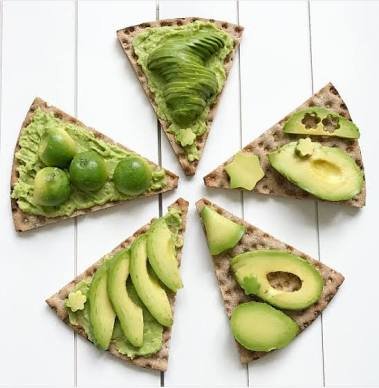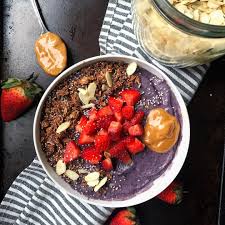Cholesterol: which diet to adopt?
The anti-cholesterol diet or cholesterol-lowering diet helps fight against excess cholesterol in the blood (hypercholesterolemia). Coupled with regular physical activity, it significantly reduces the risk of cardiovascular disease ...
Ah cholesterol ... Woe to the one who produces too much. This lipid naturally present in our body is indeed synthesized by the body at 75%, mainly in the liver. The latter produces about 1 g of cholesterol each day from other fats, carbohydrates and proteins while the remaining 25% comes from the diet.
Essential for our good health, cholesterol is used in the composition of cell membranes (about 90% of cholesterol is dedicated to this function) and participates in the synthesis of several hormones, such as testosterone. It also contributes to brain function, mood regulation (the brain directly synthesizes the cholesterol it needs) and the development of the fetal nervous system. In addition, cholesterol is essential to synthesize vitamin D and produce bile, used to digest dietary fat .
Distinguish between "good" and "bad" cholesterol
Cholesterol can bind to two types of protein in the body: High Density Lipoprotein (HDL) and Low Density Lipoprotein (LDL).
LDL cholesterol is dubbed "bad cholesterol" because LDLs store excess cholesterol in the organs and deposit it on the lining of the arteries as well, which can be detrimental to health.
Conversely, HDL cholesterol is nicknamed "good cholesterol" because HDLs transport excess cholesterol to the liver so that it is eliminated in the bile.

Excess bad cholesterol: causes and risks
The total cholesterol level is considered normal when it is between 1.5 and 2 g per liter of blood (up to 2.5 g per liter from 30 years).
In case of hypercholesterolemia , it is usually the LDL cholesterol level that needs to be corrected. Excess LDL cholesterol is often caused by eating too much fat : beware of saturated fatty acids and trans fatty acids of industrial origin. But hypercholesterolemia can also be linked to hereditary predispositions , certain liver, kidney or thyroid diseases and certain medications (eg corticosteroids, contraceptive pills).
Problem: Excessive bad cholesterol says increased risk of cardiovascular disease . By depositing on the arteries, cholesterol forms plaques of atheroma, hindering the passage of blood. Eventually, a blood clot (thrombus) can form and cause, according to the clogged artery, a myocardial infarction or a cerebrovascular accident (stroke).
In other cases, the atheromatous plaque may become detached from the arterial wall and cause pulmonary embolism or cerebral emboli . The risks are even higher for people who already have one or more cardiovascular risk factors: smoking , diabetes, obesity , high blood pressure, personal or family history of cardiac pathology ...
This is why the rate of bad cholesterol not to be exceeded varies from person to person. For example, for a person over 30 years old without a risk factor, LDL cholesterol should be less than 2.2 g / l. But the threshold not to be exceeded can fall to 1.9 g / l in the presence of a risk factor, to 1.6 g / l for two risk factors then to 1.3 g / l for three risk factors . Beyond this, it is recommended that the LDL cholesterol level does not exceed 1 g / L.

Foods to avoid in case of excess cholesterol
To prevent or fight hypercholesterolemia, limit the saturated fatty acids present in animal products: whole milk, fatty meat, butter, sausages ... Also limit industrial products containing a lot of trans fatty acids such as commercial pastries , Viennese pastries, spreads, puff pastry, pizza dough ...
For information, ANSES (National Agency for Food Safety) has set a threshold for trans fatty acids not to be exceeded in 2005: it is equivalent to 2% of the total energy intake of the day. Finally, reduce your consumption of foods high in cholesterol such as egg yolk, cheese, offal or foie gras.
Another tip: make a cross on fried foods and other cooking methods that require an addition of fat. Instead, opt for steaming, baking, baking or grilling.
Anti-cholesterol foods to focus on
The cholesterol-lowering diet gives pride of place to fresh fruits and vegetables as well as whole grains (eg whole wheat bread), especially for their high fiber content. These limit the absorption of cholesterol by the body during digestion.
In terms of fat, choose unsaturated fatty acids : the famous omega-3s , in particular, have an anti-inflammatory action on the atheromatous plaque. You will find it mainly in certain vegetable fats (eg: soybean oil, walnut oil, rapeseed oil, olive oil) and in oily fish such as salmon, tuna, mackerel or even fish. herring. On the meat side, think of poultry such as turkey and skinless chicken: they are very poor in "bad" fats.
Source of video
Dietary supplements against cholesterol?
Many anti-cholesterol dietary supplements contain red yeast rice: its active ingredient is monacolin K, a kind of natural statin. Statins reduce the production of cholesterol by the body and are also used in cholesterol-lowering drugs.
Never take these dietary supplements without medical advice, especially if you are already on statin therapy. They are also not recommended for pregnant and lactating women.
Same recommendation for supplements and foods fortified with phytosterols. While they can lower cholesterol levels but they also reduce the level of antioxidant vitamins in the body ... Omega-3 supplements are less risky but take medical advice if you also follow a treatment anticoagulant.

.png)
Good article. A daily handful of brazil nuts is good too.
Thanks
Detailed post about the foods we should eat and the ones we shouldn't.
Keep it up
Thanks
You
img credz: pixabay.com
Nice, you got a 84.0% @kamikaze upgoat, thanks to @sobiakanwal
Want a boost? Minnowbooster's got your back!
You got a 100% up-vote and free resteemed from @resteem1
If you want boost please read it.
https://steemit.com/news/@resteem1/introducing-new-service-up-votes-daily-with-free-resteemed-for-minnows
Thanks
.
Its only the damaged or oxidized LDL that is harmful. Normal LDL is not dangerous. LDL gets oxidized when there is inflammation or through cooking via high heating methods such as frying, barbquing, or broling.
This post has received a 0.07 % upvote from @drotto thanks to: @banjo.
Hi, excellent post to raise awareness about the importance of controlling cholesterol levels, just a comment about the normal values of LDL cholesterol (the "bad" one):
-Less than 100 mg/dl is the optimal level
-100-129 mg/dl is normal
-130-159 mg/dl corresponds to borderline risk
-160-189 mg/d to high risk
-Great to 190 mg/dl is very high risk
Thank you for supporting health care, hugs and followed :)
good and like
Congratulations! This post has been upvoted from the communal account, @minnowsupport, by sobiakanwal from the Minnow Support Project. It's a witness project run by aggroed, ausbitbank, teamsteem, theprophet0, someguy123, neoxian, followbtcnews/crimsonclad, and netuoso. The goal is to help Steemit grow by supporting Minnows and creating a social network. Please find us in the Peace, Abundance, and Liberty Network (PALnet) Discord Channel. It's a completely public and open space to all members of the Steemit community who voluntarily choose to be there.
Thanks